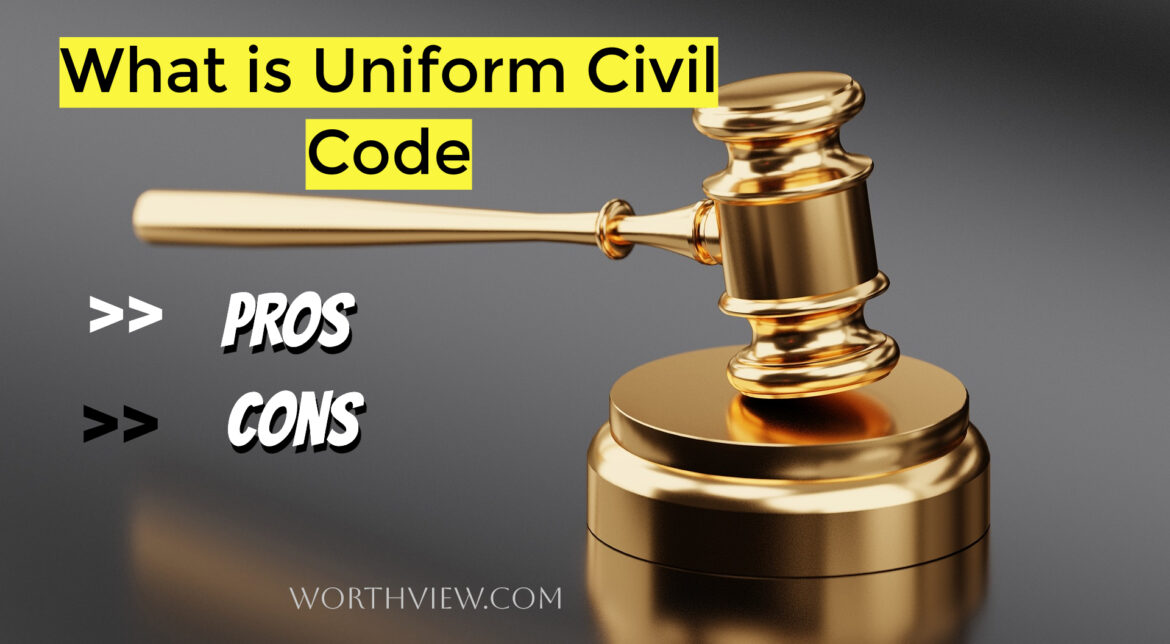The Uniform Civil Code (UCC) is a proposal in India to formulate and implement personal laws of citizens which apply on all citizens equally regardless of their religion, gender and sexual orientation. Currently, personal laws of various communities are governed by their religious scriptures.
The idea of a UCC was first mooted during the drafting of the Indian Constitution in 1947. However, it was not included in the final document as there was no consensus on the issue. Since then, the UCC has been a subject of debate and discussion, with proponents arguing that it is necessary to promote gender equality and national integration, while opponents argue that it would violate religious freedom.
What is a Uniform Civil Code?
A Uniform Civil Code is a set of laws that would govern all personal matters of citizens, regardless of their religion. This would include matters such as marriage, divorce, inheritance, adoption, and succession. The goal of a UCC is to ensure that all citizens are treated equally under the law, regardless of their religious background.
Pros of a Uniform Civil Code
There are several potential benefits to a Uniform Civil Code. These include:
- Gender equality: A UCC could help to promote gender equality by ensuring that all women have the same rights and responsibilities under the law. For example, a UCC could make it easier for women to get a divorce, and it could also guarantee women equal inheritance rights.
- National integration: A UCC could help to promote national integration by reducing the religious divide in India. If all citizens are governed by the same laws, it could help to create a more united and cohesive society.
- Efficiency: A UCC could also help to improve the efficiency of the legal system. If there were a single set of laws governing personal matters, it would be easier for lawyers and judges to understand and apply the law. This could lead to shorter court cases and a more efficient legal system overall.
Cons of a Uniform Civil Code
There are also some potential drawbacks to a Uniform Civil Code. These include:
- Religious freedom: Some people argue that a UCC would violate religious freedom. They argue that the right to practice one’s religion includes the right to be governed by the laws of that religion.
- Cultural diversity: India is a country with a rich cultural diversity. Some people argue that a UCC would erode this diversity by forcing people to conform to a single set of laws.
- Political feasibility: It is also not clear whether a UCC is politically feasible. There is no consensus on the issue, and it is likely to be a controversial topic.
Current status of the Uniform Civil Code in India
The current status of the UCC in India is uncertain. In 2019, the Law Commission of India submitted a report to the government that recommended the introduction of a UCC. However, the government has not yet taken any action on this recommendation.
There are a number of factors that could affect the future of the UCC in India. These include:
- Public opinion: Public opinion on the UCC is divided. Some people support the idea, while others oppose it. The government will need to consider public opinion before making a decision on whether or not to implement a UCC.
- Political will: The government will need to have the political will to implement a UCC. This is a complex and controversial issue, and the government will need to be prepared to face opposition from both religious groups and political parties.
- Legal challenges: There are likely to be legal challenges to the implementation of a UCC. Religious groups may argue that a UCC violates their right to freedom of religion. The government will need to be prepared to defend the UCC in court.
It is unclear whether or not the UCC will ever be implemented in India. There are strong arguments on both sides of the issue, and it is likely to remain a controversial topic for many years to come.
Conclusion
The Uniform Civil Code is a complex issue with both potential benefits and drawbacks. It is important to weigh the pros and cons carefully before deciding whether or not to implement a UCC in India.
Related Posts












